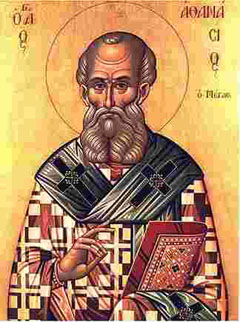Fundraising for a UCCF Staff Worker in Cumbria
 I'm up at the Keswick Convention this week, fund-raising for a UCCF Staff Worker to be placed in Cumbria from 2008. This is the latest stage in a wider project to fund the following worthy cause....
I'm up at the Keswick Convention this week, fund-raising for a UCCF Staff Worker to be placed in Cumbria from 2008. This is the latest stage in a wider project to fund the following worthy cause....
60,000 Higher Education and Further Education Students in Cumbria
The University of Cumbria will be formed in August 2007 from an amalgamation of St Martin’s College, Cumbria Institute of the Arts, and the Cumbrian campuses of the University of Central Lancashire. The university will have campuses in Carlisle, Penrith, Whitehaven, Ambleside and Lancaster as well as a specialist teacher-training centre in London.
The university will also have strong links with the four FE Colleges in Cumbria (Lakes College in Workington, Furness College, Carlisle College and Kendal College) and is working towards HE courses being delivered locally across the county.
Many of the young people set to study at the University of Cumbria will know little of Jesus. With the help and support of local churches, UCCF is committed to supporting the existing Christian Unions in Cumbria, whilst also working to establish a Christian witness on every campus of the University of Cumbria.
The vision
Carlisle. Carlisle already has a vibrant Christian Union, comprised of students from Cumbria Institute of the Arts and St Martin’s College (Carlisle campus). There are also many churches in Carlisle who are already supportive of the Christian Union. UCCF will continue to provide resources and support for the CU in Carlisle, and in May we appointed Ruth Craven as an Associate Staff Worker (part-time and unpaid) to give support to students in Carlisle, where needed.
Pray that once the University of Cumbria has been formed, the CU will continue to grow. Pray particularly that the CU will be able to better reach the Carlisle campus of the University of Central Lancashire. Pray too for Carlisle College that, with time, there could be a Christian witness on the FE campus, supported by the CU members from the university. CUs in other UK cities are using a ‘big brother little brother’ model, where larger CUs offer help and support to a small FE college CU in their locality.Ambleside. There is already a thriving Christian Union in Ambleside, made up of about 18 students from the 850 strong campus of St Martin’s College. This CU has had another really encouraging year, with all the students showing a willingness to be involved with the CU activities and focused in their evangelism. They were able to hold a week-long mission last term, the highlight of which was a curry night that included a talk on John 3. Almost forty students came and many of the non-Christians were asking insightful questions afterwards. The CU has recently started a Monday night ‘Smoothie Bar’ and this has encouraged many non-Christian students to look into Jesus’ claims.
Pray that going forward, the CU members will continue to witness clearly and boldly to students at the Ambleside campus, and that UCCF staff will be able to continue supporting them.Penrith. We'd love to see student-led CUs on all of the Cumbria campuses, including the University of Central Lancashire’s Newton Rigg campus in Penrith.
Pray that, as the Penrith campus is relatively large and currently has no known Christian witness, we will be able to work together to unite Christian students here, and that a Christian Union will be quickly established.Workington, Whitehaven, Kendal and Barrow-in-Furness. We would love to pioneer FE College Christian Unions in these towns.
Please pray with us that God will be placing Christian students in the colleges, so that when a UCCF Staff Worker for Cumbria has been appointed they can help these Christians to form CUs.
How to realise the vision…
Staff Worker for Lancashire and Cumbria, Peter Dray, currently has six CUs to support, which means that he is not able to visit the two existing CUs in Cumbria frequently, and cannot even consider pioneering new CUs on Cumbrian campuses due to his large workload and the geographical spread of the area he covers.Whilst we are grateful that Ruth Craven is able to spend the equivalent of a day per week supporting the CU in Carlisle, we feel that there is an urgent need to appoint a full-time Staff Worker for Cumbria from September 2008 (at the latest), who can work towards pioneering CUs on Cumbrian campuses, whilst also supporting the existing CUs in Carlisle and Ambleside.
To achieve this vision we need individuals and churches in Cumbria, especially those who are located near to the campuses, to commit to supporting the students in their area, helping them to live and speak for Jesus. We also need the right person to appoint as Staff Worker. Please do pray for these things.
If you would like further information, please contact Jema who would be happy to send you a brochure outlining in more detail the opportunities for gospel work amongst students in Cumbria.






